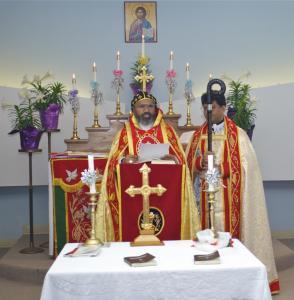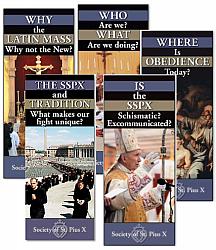

There needs to be a distinction, then, between the disciplinary level, which deals with individuals as such, and the doctrinal level, at which ministry and institution are involved. Pope Benedict then dealt with the status of the Society and its ministers:Īs long as the Society does not have a canonical status in the Church, its ministers do not exercise legitimate ministries in the Church. This mirrors the Society's own statement. This gesture was possible once the interested parties had expressed their recognition in principle of the Pope and his authority as Pastor, albeit with some reservations in the area of obedience to his doctrinal authority and to the authority of the Council.

The remission of the excommunication has the same aim as that of the punishment: namely, to invite the four Bishops once more to return. Twenty years after the ordinations, this goal has sadly not yet been attained. Consequently the Church must react by employing her most severe punishment – excommunication – with the aim of calling those thus punished to repent and to return to unity. In 2009, Pope Benedict XVI remitted the excommunication of the four bishops consecrated without authority by Archbishop Lefebvre, and explained in an apostolic letter:Īn episcopal ordination lacking a pontifical mandate raises the danger of a schism, since it jeopardizes the unity of the College of Bishops with the Pope. If and when the time-honored teachings of the Church are obscured or perhaps even seemingly contradicted by the authorities in Rome, however, the SSPX stands firm for tradition.Īrchbishop Lefebvre consecrated four priests as bishops in 1998 without authority, an act which was schismatic under Canon Law and resulted in all five being excommunicated by Pope John Paul II. Pius X humbly submits to the authority of the pope, supreme guardian of the faith, and pays him all the reverence due to the chosen head of God’s Church. Such Societies, "since they are dedicated in a special way to the service of God and of the whole Church, are in a particular manner subject to its supreme authority".

The Society of S Pius X is constituted as a Society of Apostolic Life with the canonical approval of the Bishop of Fribourg. Living a fraternal life in common in their own special manner, they strive for the perfection of charity through the observance of the constitutions". Huonder didn't expect such a drastic measure and - had he still been in office - would have asked Francis to "get informed" - as if Francis' misdeed had not been done with knowledge and intention.Īccording to unconfirmed rumors Huonder had to sign with PiusX that he will not celebrate priestly ordinations for the Fraternity of St Peter.Societies of Apostolic Life, "without taking religious vows, pursue the apostolic purpose proper to each society. He was “very upset and sad” about it and even “cried.” Traditionis custodes also touched his feelings. This is Huonder's reason why he doesn’t want to preside the New Mass anymore which he used all his life, “I couldn’t do it anymore, because when you immerse yourself in the traditional Holy Mass, you simply come to this point where you feel there's no other way.” Huonder who lives at a PiusX school in Wangs, Saint Gall, told FSSPX.ch (September 26) that he went public with this anecdote to reassure people suffering from a “false argument.” Francis told former Chur Bishop Vitus Huonder, Switzerland, that the Society St PiusX “is not a schismatic community.”


 0 kommentar(er)
0 kommentar(er)
